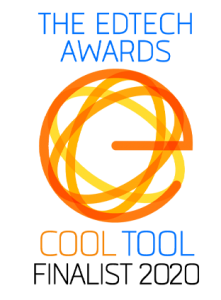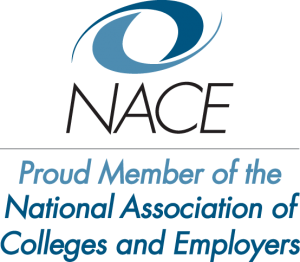What kind of tools are available that might serve as an effective career path finder?
If you’ve worked with students who are struggling with figuring out their career path, you’ve felt their pain. Or maybe you are an individiual struggling to decide what career path to take. Either way, it is very hard to have a sense of purpose when there is so much uncertainty regarding what comes next. Managing the minefield of trials and errors is a major challenge for everyone.
How can individuals gain the kind of clarity they need, and for which they yearn?
What Career Path Finder Actually Works in Career Decision-Making?
Vocational psychologists have addressed the question of what actually works in career decision-making by using rigorous research to investigate the effectiveness of career interventions. By “interventions” here, I mean any kind of guided strategies or activities designed to help people address their career decision-making concerns.
Studies on Intervention Effectiveness
Many studies test the effectiveness of an intervention by conducting an experiment. In the simplest version of this, they begin by identifying a group of people with relevant needs (say, individuals seeking career counseling), then randomly assign them into two conditions.
In the first, these recruits participate in the career intervention being tested — whether that is one-on-one career counseling, group counseling, a classroom-based intervention, a workshop, or an online assessment system.
In the second, the recruits do whatever it is they would ordinarily do on their own. Measures are taken, usually using a brief survey, of the recruits in both groups at the same points in time, maybe once before the intervention begins, once after it ends, and at least once more, several months down the road. Those measures assess attitudes about their current status in their career, like how confident or optimistic they feel about the process, the extent to which they’ve made a decision they feel good about, or the level of clarity they experience about their career direction.
Then the researchers examine scores on those measures to evaluate how much the two groups change over time. If the group that experienced the intervention has substantially better outcomes than the control group, researchers can conclude with some confidence that the intervention is effective.
So, What Career Path Finder is Effective?
A large number of these studies have accumulated over the years—so many that researchers have conducted several meta-analyses, or studies of studies, on the question of what works in career interventions.
Meta-analyses are goldmines of information on this question, because they gather every published study that has experimentally tested a career intervention. Then, across all these studies, they apply sophisticated statistical methods to estimate the overall effects that have been found.
In one influential meta-analysis of 62 studies with 7,725 participants[i], Loyola University Chicago professor Steve Brown and his Ph.D. student, Nancy Ryan-Krane, were interested understanding two questions.
- Are career interventions effective?
- If career interventions are effective, and if some interventions are more effective than others, what differentiates really helpful interventions from those that don’t work as well?
The answer to that first question is a resounding yes.
People with career concerns who participate in career interventions do indeed experience better outcomes than do control group participants. The size of the effect of these interventions is both statistically and practically significant, and similar to effects found from general psychotherapy on psychological health outcomes.
What differentiates career interventions?
To answer the second question, Brown and Ryan-Krane coded the intervention tested in each study according to the particular components it included, such as the use of self-report inventories, values card sorts, written exercises, and so forth—18 such components in all. Then they examined which components tended to show up in the most effective interventions.
Intervention Effectiveness: WIMSI
They discovered that five specific components made a big difference in intervention effectiveness. These “critical ingredients” are as follows:
- (1) Written goal-setting and reflection exercises;
- (2) Individualized interpretation and feedback;
- (3) Modeling of effective career decision-making behavior ;
- (4) Support-building by enlisting encouragement and help from important people in participants’ lives; and
- (5) Information about the world of work.
If you need help remembering them, use the acronym WIMSI.
The most effective interventions included in the meta-analysis incorporated some combination of these five components, and the more of them that were delivered in a particular intervention, the larger the intervention’s effect.
So, what does it mean to “get active” in one’s career decision-making? It means trying out these five “critical ingredients.”
PathwayU: A WIMSI Career Path Finder
At the time Brown and Ryan-Krane’s meta-analysis was published, they found zero career interventions that included all five of those WIMSI “critical ingredients.” However, the more ingredients a particular intervention included, the greater its effectiveness.
Today, is there a career intervention that includes all five?
There is. Leveraging the best available science, Fort Collins, CO-based jobZology® has developed a cutting-edge career path finder called PathwayU™.
What is PathwayU?
PathwayU is an online career assessment system that offers individuals a chance to create a profile, take a series of scientifically-supported assessments providing individualized interpretation and feedback, and then use that information to guide a detailed exploration of career paths predicted to fit them well.
Individuals who use PathwayU are also granted access to an accompanying workbook that contains written goal-setting and reflection exercises, as well as instructions for enlisting help from supportive others and from role models.
A Solution for Schools
Educational institutions who use PathwayU are offering individuals a career intervention that incorporates all five “critical ingredients” shown in research to deliver real results.
When offered within the context of the career development support they already have in place, these schools provide a level of support thoroughly rooted in the science of what works, and their students thrive because of it.
A Solution for Individuals
If you are not a part of a school that uses PathwayU and you want to experience a career path finder built on the foundation of scientific research regarding what works in career decision-making, give PathwayU a try for yourself.
[i] Brown, S. D. (2017). Meta-analysis and evidence-based career practice: Current status and future directions. In J. Sampson, E. Bullock-Yowell, V. Dizier, D. Osborn & J. Lenz (Eds.), Integrating theory, research, and practice in vocational psychology: Current status and future directions (pp. 82-89). Tallahassee, FL: Florida State University Press. Brown, S. D., & Ryan Krane, N. E. (2000). Four (or five) sessions and a cloud of dust: Old assumptions and new observations about career counseling. In S. D. Brown & R. W. Lent (Eds.), Handbook of counseling psychology (3rd ed., pp. 195–226). New York: Wiley.







